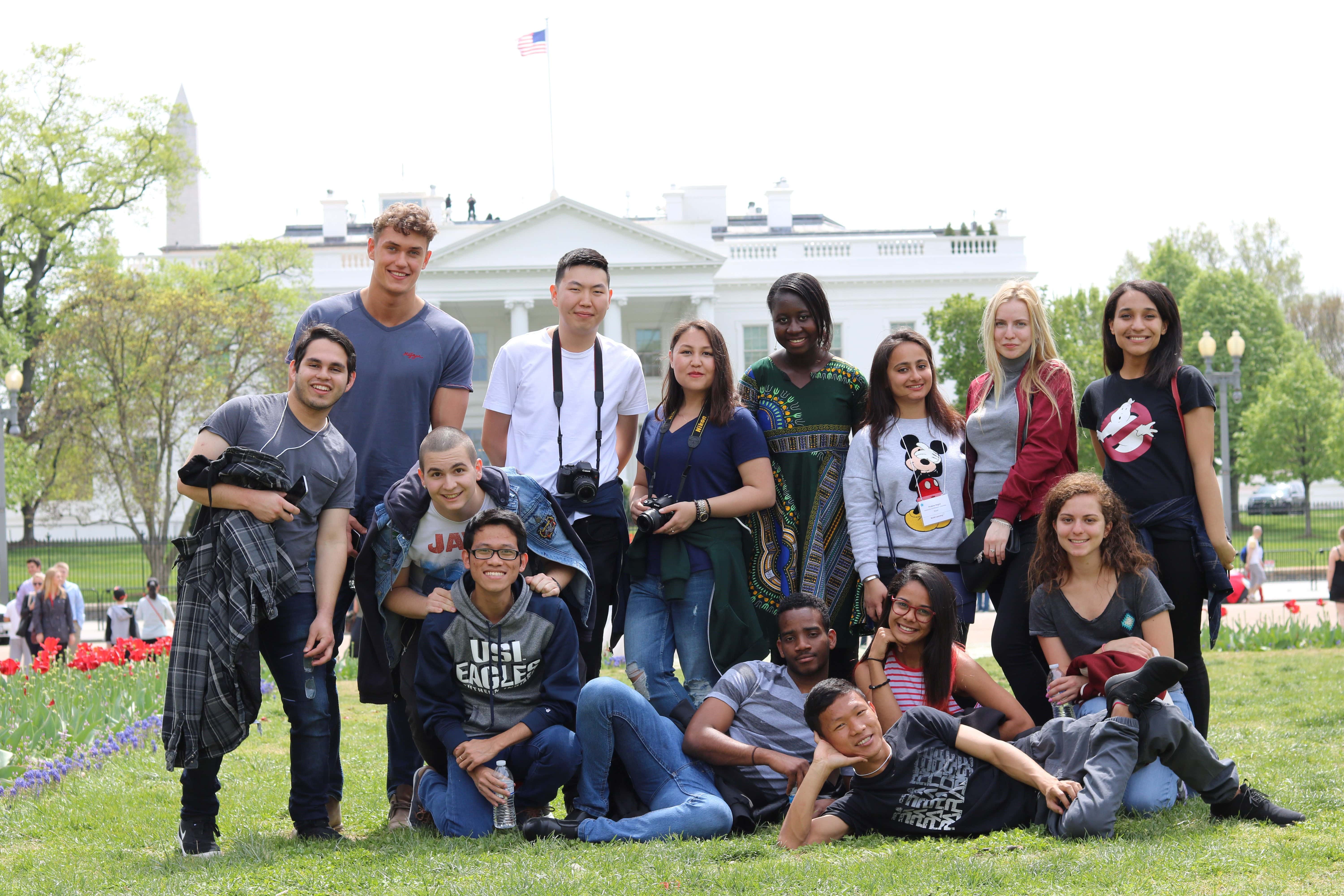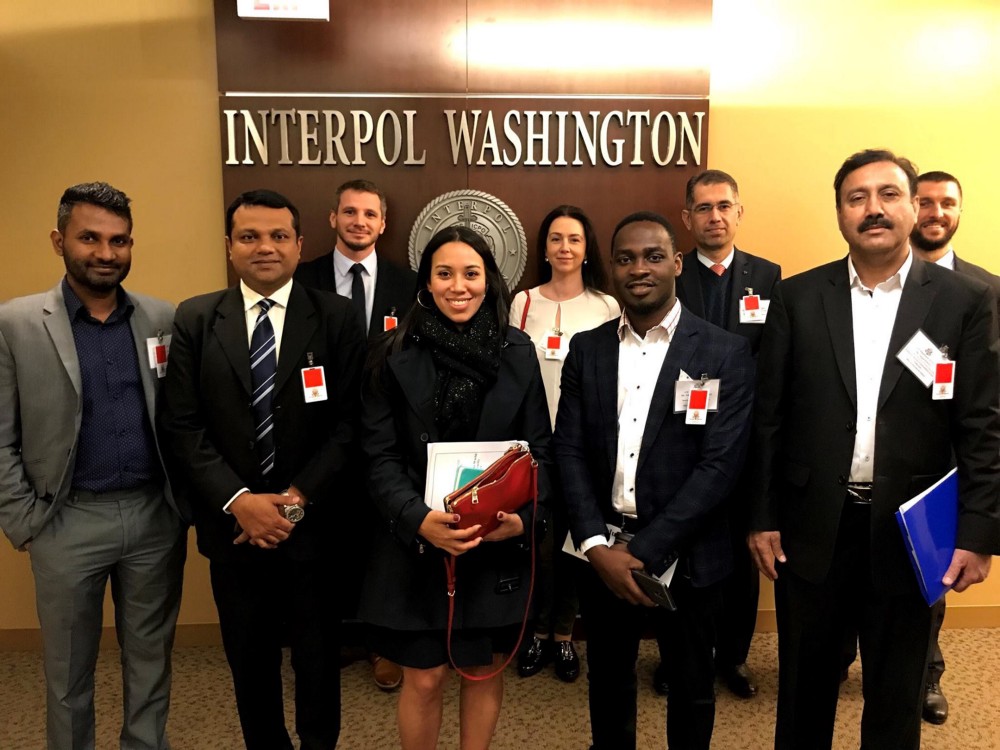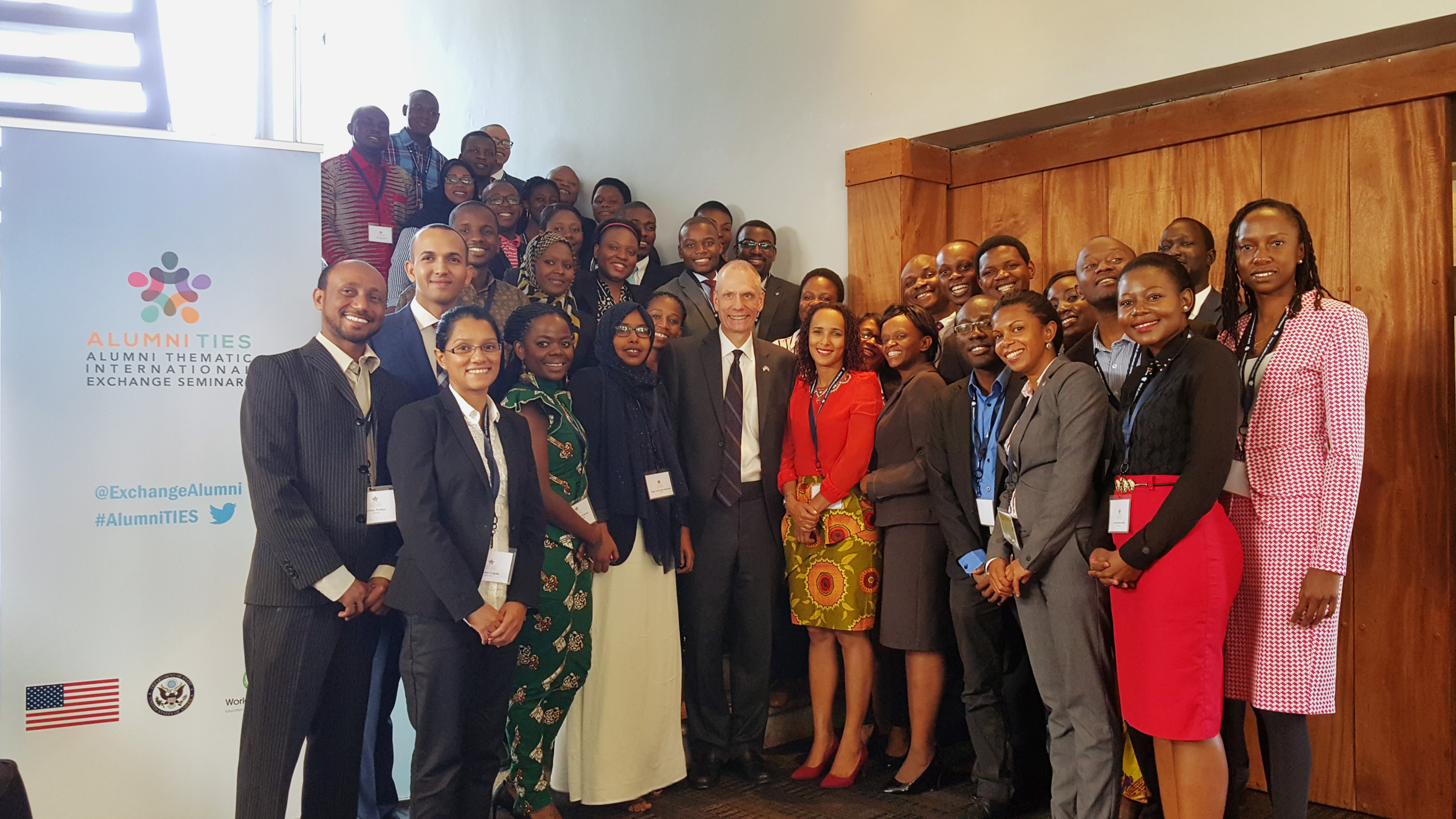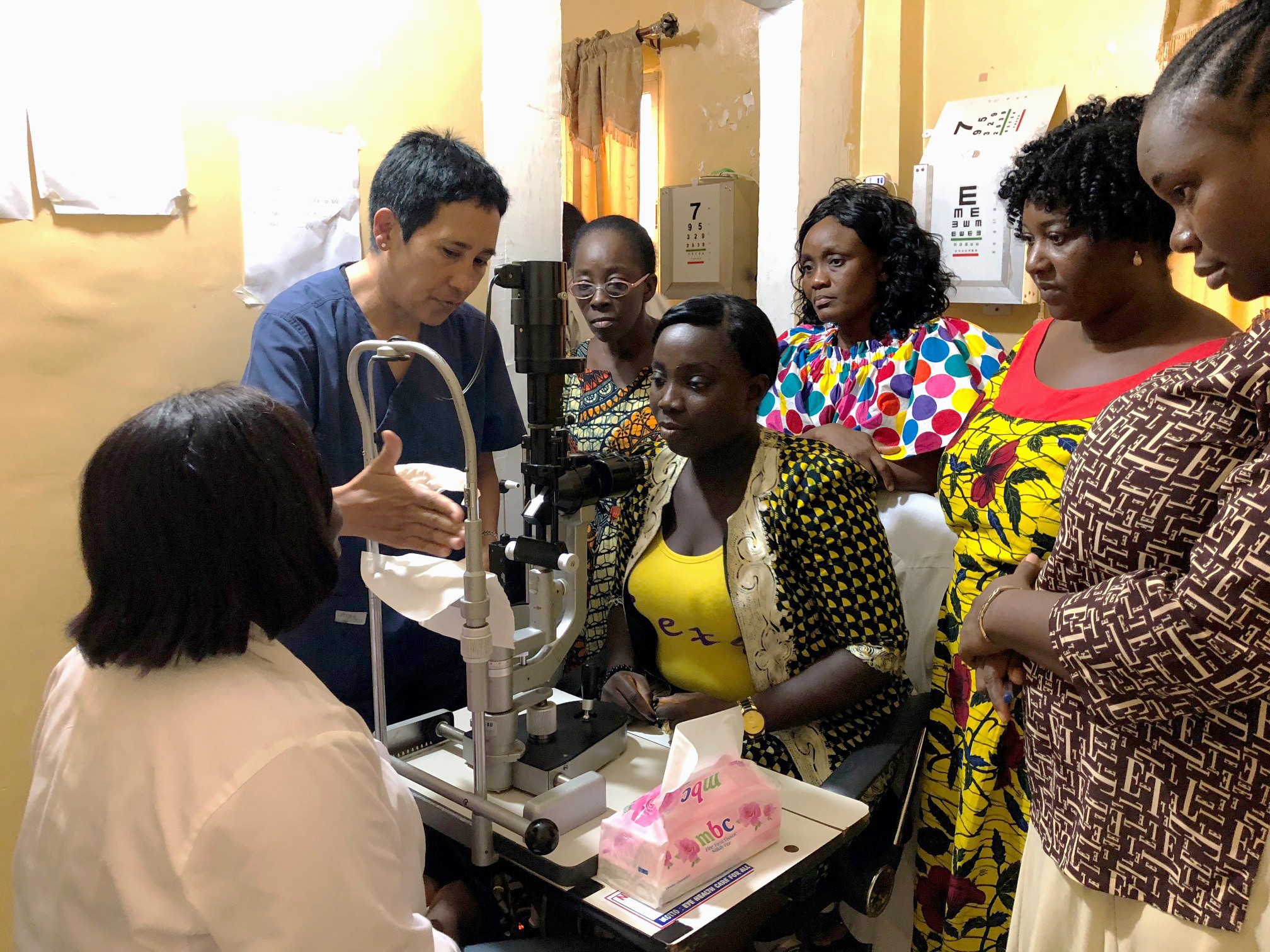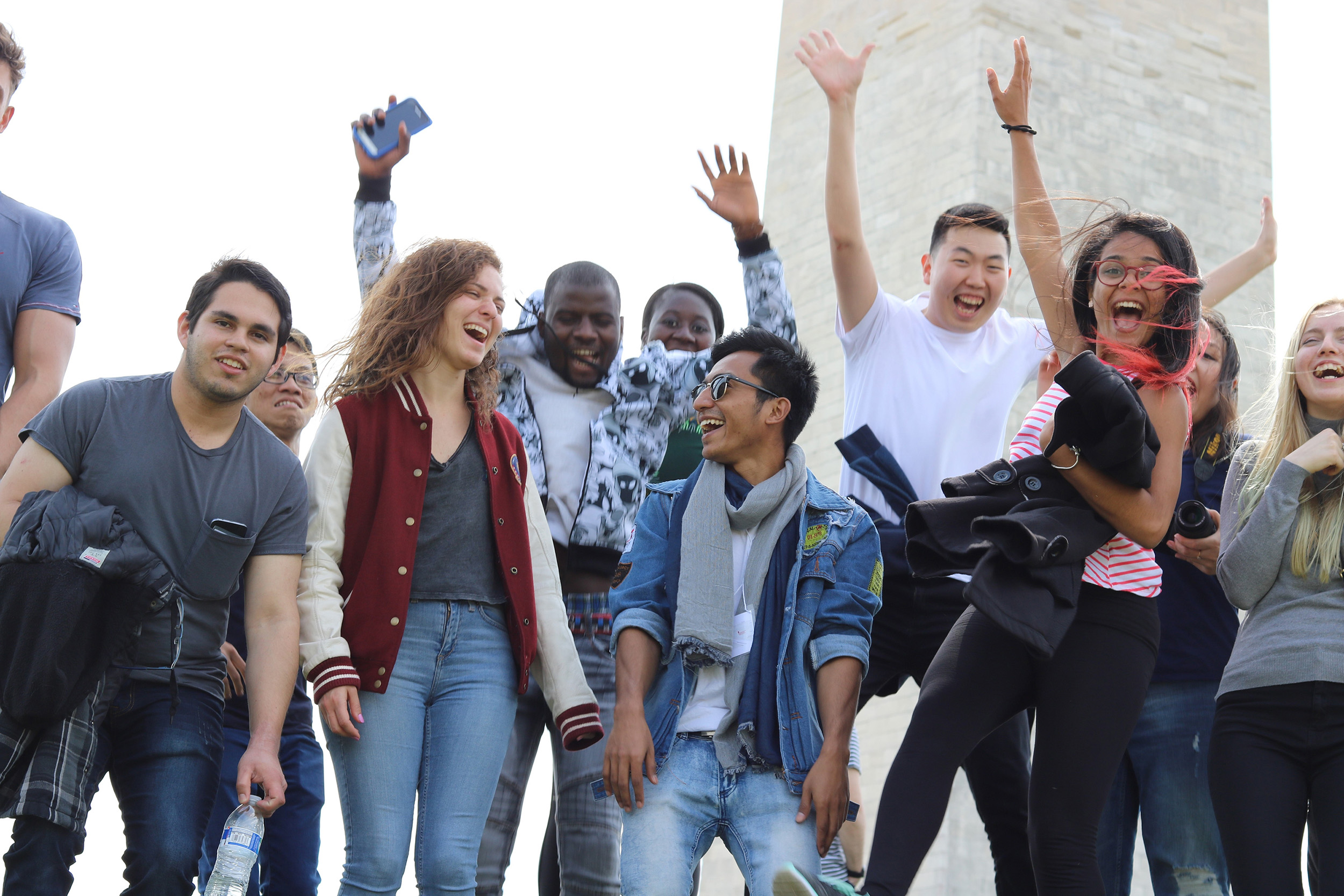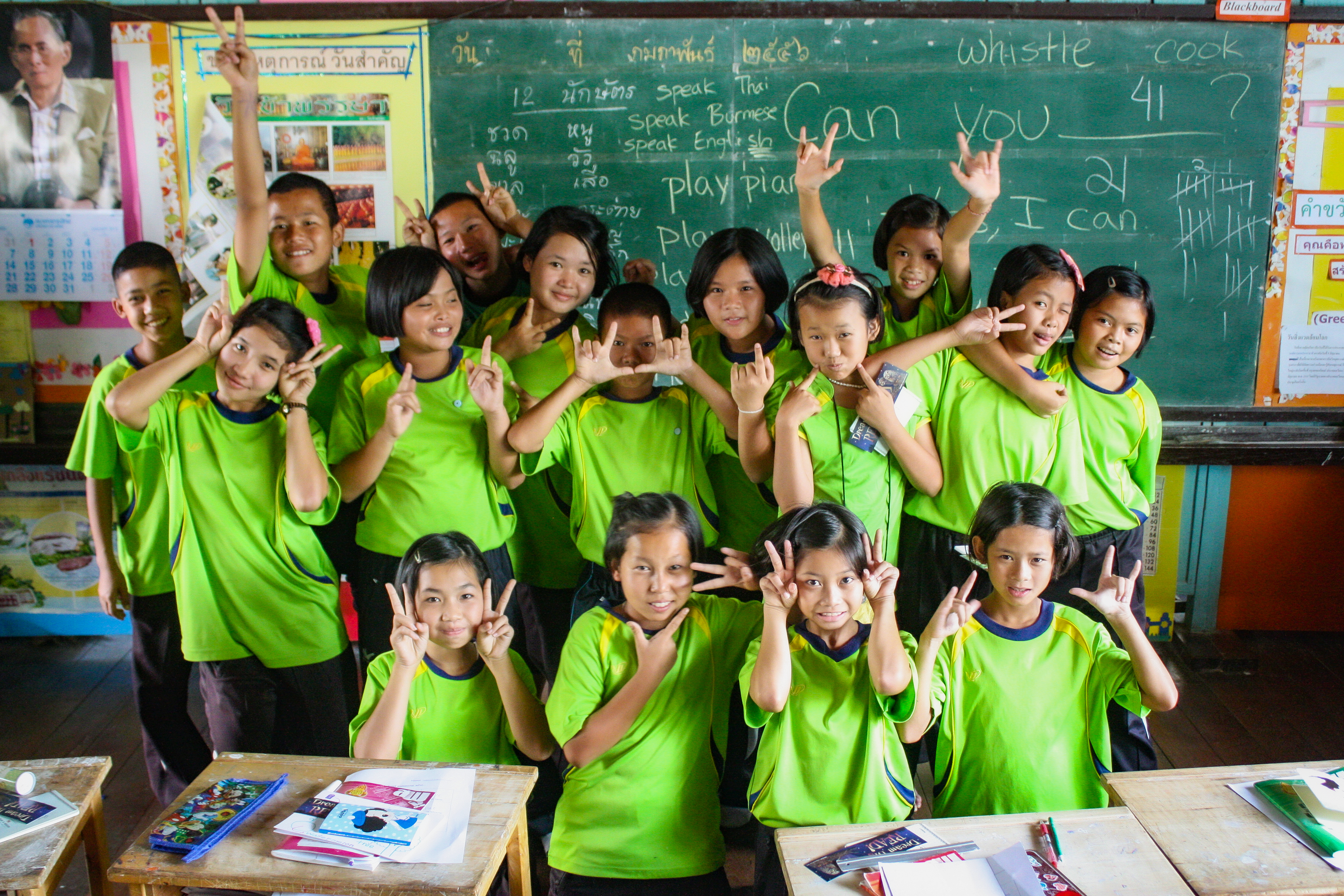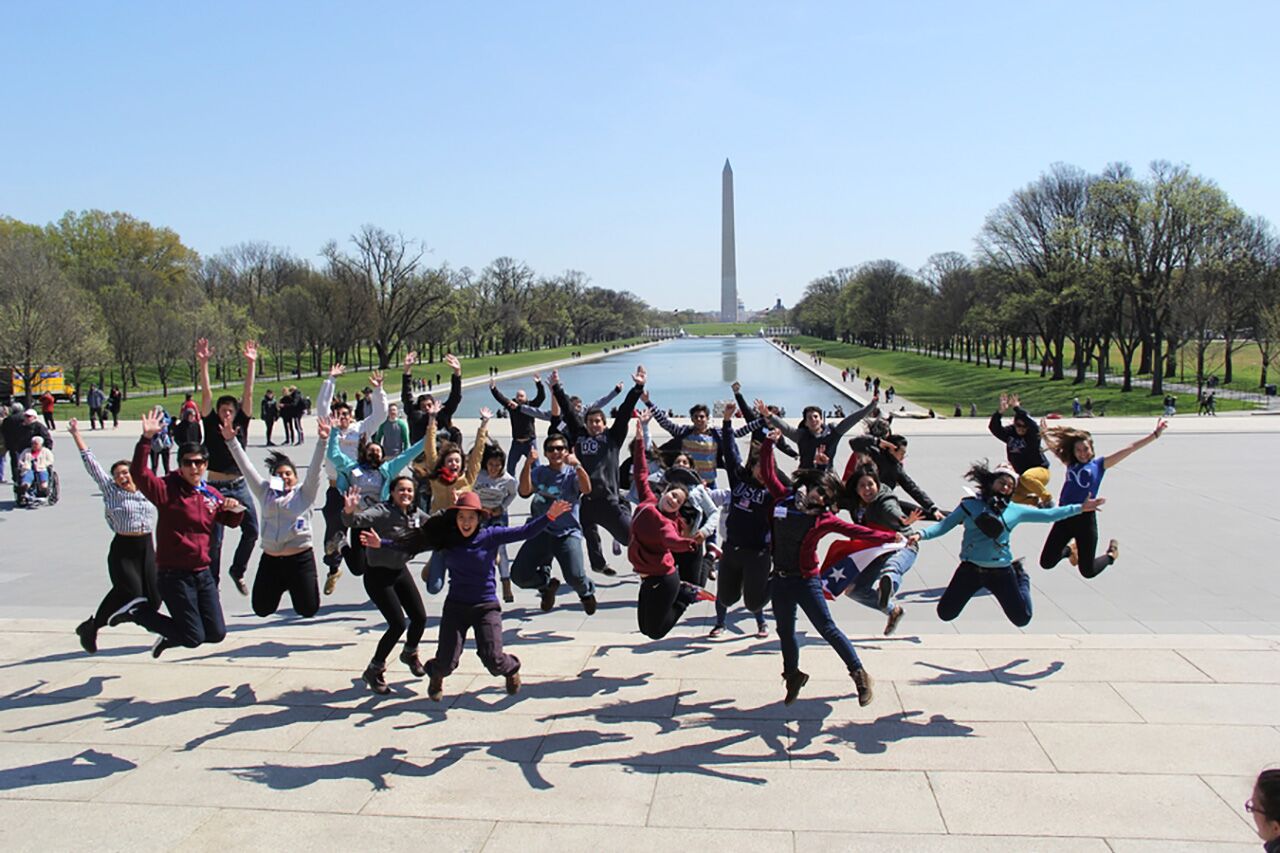-
What We Do
- WHERE WE WORK
-
About Us
 Welcome Message from Carol Jenkins
Welcome Message from Carol JenkinsFor more than 90 years, World Learning has equipped individuals and institutions to address the world’s most pressing problems. We believe that, working together with our partners, we can change this world for the better.
On my travels, I’ve had the opportunity to meet with many of those who have joined us in this mission. In Baghdad, we’ve trained more than 2,300 Iraqi youth who are already giving back at home. In London, our partners in the TAAP Initiative strongly believe that we are all responsible to practice inclusion. And in Vermont, our Experiment in International Living and School for International Training participants prove every day that they have the tools and the determination to change the world.
Please join us in our pursuit of a more peaceful and just world.
- Get Involved
Country: Dominican Republic
Building a More Secure World Through International Exchange
In an increasingly globalized world, law enforcement officials agree that cross border cooperation is vital to their success, especially those who investigate and prosecute organized, crime trafficking, and money laundering.
“Crime does not know borders,” says Iva Balgac, general police director at the Service for Strategic International Police Cooperation in Croatia.
In April, she was one of 80 law enforcement officials to participate in a three-week International Visitor Leadership Program (IVLP) exchange with the focus Towards a More Safe and Secure World: Combating Transnational and Organized Crime.
The program, funded by the U.S. Department of State and organized by World Learning, brought law enforcement professionals from across Europe and the Western Hemisphere to the U.S. to build networks and learn from their American counterparts. They traveled to more than a dozen cities across the country, including Washington, D.C., Tampa, and more, and the trip culminated at the Global Security Conference in New York City.
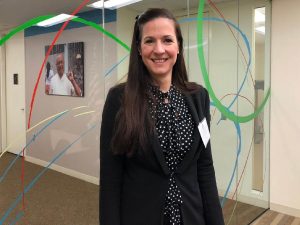
“For me as a police officer, it’s always good to know a police officer in another country so that you have a direct contact and they can advise you how to solve certain issues,” Balgac says.
While police forces around the world have cooperative agreements allowing them to run a foreign license plate number or set up joint drug trafficking investigations, she says, “if you don’t have a colleague on the other side then [those agreements are] not very useful.”
Building a robust professional network is also critical for those who are responsible for crafting laws governing transnational crime. Bosnia and Herzegovina, for example, looked to U.S. practices and international standards back in the early 2000s when it was reforming its judiciary and police.
Edin Jahic analyzes policy and ensures compliance with international standards as chief of the Section for Fighting Organized Crime and Corruption at the Ministry of Security in the Balkan state. He says his country adopted tools — like plea agreements and a witness protection program — that originated in the U.S. and have proven to be very effective in Bosnia and Herzegovina as well. He hoped to get an even better understanding of U.S. policy by participating in the exchange.
“It’s not enough just to read some provision or international standard explanation,” Jahic says. “You have to understand it in practice, especially if you are not a native English speaker. One word can change the entire work.”
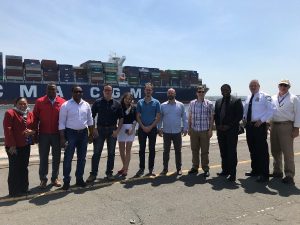
In addition to meetings at federal institutions, Jahic says highlights of the program included meeting analysts from the private sector and universities. He also valued making connections with his fellow European participants.
“I am very fortunate to meet these guys,” he says. “We’ve already made some friendships that are going to last more than these three weeks and, of course, it’s going to be very helpful for my future job.”
Some of the participants already found that the exchange program is helping their work.
Juan Antonio Mateo Ciprian, a public prosecutor for the Attorney General of the Dominican Republic and director of the Department of Counterfeiting Investigations, says the exchange has given him insight into the internal and international cooperation that his U.S. counterparts employ to combat counterfeiting.
He explains that many in the Dominican government — including judges — do not consider forgery a serious crime. He wants to raise consciousness about how forgeries can be used to flout international laws and immigration policies.
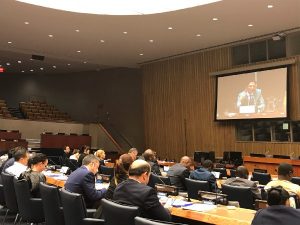
Laxity about forgery, Mateo Ciprian says, affects the country’s image abroad and lowers its potential for economic investment. He wants to change that by developing a training course for members of the prosecutor’s office.
“The idea is to eventually create a specialized prosecutor’s office that will help and advise all the various prosecutors in the country,” he says. “The lessons I have learned here will help me a great deal.” He also plans to use the knowledge and connections gained from the exchange program to share knowledge of forgery and contraband with the U.S. Embassy in Santo Domingo.
The Dominican prosecutor says the exchange program was not only professionally enriching but also personally interesting.
“We have seen amazing situations,” Mateo Ciprian says. “We have had visits not only to places such as prisons, but we have also met with homeless people. In general, I have been fascinated to see how crime is prosecuted in this country.”
Written by Amy McKeever, writer/editor at World Learning
Dominican Republic
Alumni Thematic International Exchange Seminars
Participant Profile
Participants are alumni of U.S. government-sponsored exchange programs and vary in age and level of expertise, but all will be engaged in the seminar topic and highly motivated to create change in their communities.
Please consult the list of U.S. government-sponsored exchange programs below.
- U.S. citizen: https://exchanges.state.gov/us
- Non-U.S. citizen: https://exchanges.state.gov/non-us
Participant Selection
Alumni TIES participants who are not U.S. citizens are nominated by the U.S. Embassies or Consulates in their countries. Please contact the U.S. Embassy or Consulate in your country to learn how you can participate in Alumni TIES. Potential Alumni TIES participants who are living in the United States can apply for specific seminars managed by World Learning. The web link to the online application will be distributed widely by the Office of Alumni Affairs of the Bureau of Educational and Cultural Affairs.
All participants for Alumni TIES seminars are selected by the U.S. Department of State.
Program Design
Alumni TIES seminars take place in six world regions and the U.S.; each seminar is three to four days for small groups of alumni. The seminars include speakers, capacity development trainings, and alumni networking activities. Through the small grants initiative, alumni have the opportunity to take action and make a positive difference in their communities.
Learn More
Watch more videos about the Alumni TIES program.
Read stories from past participants about their experiences at the seminars or with their small grant projects on the Alumni TIES blog.
For information on programs for U.S. government-sponsored exchange program alumni visit the International Exchange Alumni website.
Alumni TIES is sponsored by the U.S. Department of State with funding provided by the U.S. Government and supported in its implementation by World Learning, in partnership with the Office of Alumni Affairs of the Bureau of Educational and Cultural Affairs (ECA).
Fulbright Specialist Program
What?
Link U.S. Experts and International Institutions
A program of the U.S. Department of State, Bureau of Educational and Cultural Affairs, the Fulbright Specialist Program is a unique opportunity for U.S. academics and established professionals to engage in two- to six-week consultancies at host institutions across the globe. Host institutions, including universities, non-profits, and other organizations, develop and submit projects for approval by the U.S. Embassy or Fulbright Commission in their country in wide-ranging academic and professional fields that build capacity and promote long-lasting linkages between individuals and institutions in the U.S. and abroad.
Why?
Address Priorities and Build Institutional Capacity at Institutions Around the World
An important companion to the traditional Fulbright Scholar Program, the Fulbright Specialist Program differs by providing short-term exchange experiences that tackle discrete, sometimes rapid response, projects. The Fulbright Specialist Program encourages participation of both university faculty and highly experienced non-academics, including legal experts, business professionals, public health practitioners, scientists, IT professionals, artists, and journalists. The program is a mutually beneficial opportunity for the Specialist who may not be available to leave their position for an extended period of time and the host institution which needs an experienced partner to jointly tackle a problem or examine an issue on a short-term basis.
How?
Become a Fulbright Specialist: Apply to Join the Roster
Fulbright Specialists are a diverse group of highly experienced, well-established faculty members and professionals who represent a wide variety of academic disciplines and professions. In order to be eligible to serve as a Fulbright Specialist, candidates must have significant experience in their respective professional field and be a U.S. citizen at time of application. Eligible disciplines and professional fields supported by the Fulbright Specialist Program are listed below.
- Agriculture
- American Studies
- Anthropology
- Archeology
- Biology Education
- Business Administration
- Chemistry Education
- Communications and Journalism
- Computer Science and Information Technology
- Economics
- Education
- Engineering Education
- Environmental Science
- Law
- Library Science
- Math Education
- Peace and Conflict Resolution Studies
- Physics Education
- Political Science
- Public Administration
- Public/Global Health
- Social Work
- Sociology
- Urban Planning
Interested candidates can find more information about the Fulbright Specialist Program and apply to serve as a Specialist at fulbrightspecialist.worldlearning.org. Candidates who meet all eligibility requirements will have their full applications reviewed by a panel of their professional peers. Candidates who are approved by the peer review panels will then join the Fulbright Specialist Roster. Individuals remain on the Specialist Roster for a three-year term and are eligible to be matched with a host institution’s project abroad during that tenure.
The following costs are covered for those Fulbright Specialists who are matched to a project: international and domestic airfare, ground transportation, visa fees, lodging, meals, and incidentals. A daily honorarium is also provided.
Become a Host: Bring a Fulbright Specialist to Your Institution
The Fulbright Specialist Program allows universities, cultural centers, non-governmental organizations, and other institutions abroad to host a leading U.S. academic or professional to work on diverse, short-term collaborative projects where the Specialist conducts activities which may include, but are not limited to:
- Delivering a seminar or workshop
- Consulting on faculty or workforce development
- Developing academic or training curricula and materials
- Lecturing at the graduate or undergraduate level
- Conducting needs assessments or evaluations for a program or institution
Institutions interested in hosting a Fulbright Specialist should contact their local Fulbright Commission or U.S. Embassy for country-specific requirements and deadlines.
Contact information for all participating countries is available on the fulbrightspecialist.worldlearning.org website.
For more information or questions about the Fulbright Specialist Program, please email [email protected].
The Fulbright Specialist Program is a program of the U.S. Department of State with funding provided by the U.S. government and administered by World Learning.
Global Undergraduate Exchange Program
To learn more and apply, please visit the Global UGRAD website.
For highlights from the Global UGRAD Program, visit our newsletter, the Global Gazette.
Global UGRAD
Online Professional English Network Program (OPEN Program)
SIT TESOL Certificate
Youth Ambassadors Program
In-Person Youth Ambassadors Programs:
Three-week, Youth Ambassadors programs commence in various locations across the United States, including San Francisco, CA; Washington, DC; or in Brattleboro, VT. Participants then travel in smaller cohorts to host communities across the country. All inbound programs include a segment in Washington, DC.
The U.S. Youth Ambassadors exchanges follow a similar program cycle, beginning with a U.S.-based pre-departure orientation, followed by international travel to the exchange country. Three-week, single, and multi-country exchanges take place between June – August; exact dates will vary by exchange country.
The Adult Mentor Role:
The Adult Mentor, or Adult Educator, role is an important part of the Youth Ambassadors Program. These adult program participants support the development of group cohesion and community among program participants; assist youth participants in cultural exploration; engage youth participants in learning and help connect their experiences to their Community-Based Service Initiatives; and continue mentorship development following the virtual or in-person exchange by supporting youth participant project implementation. Youth Ambassadors Adult Educators will:
- Facilitate participants’ progress on program activities. This may include supporting Youth Ambassadors Program staff with check-ins on individual participants’ progress; and providing insights, guidance, and encouragement on participants’ assignments and discussions.
- Build the capacity of participants. A key role of the adult educators is to build the capacity of youth participants by enabling them to solve issues or problems as they arise. Youth Ambassadors Program staff do not expect adult educators to solve problems, but rather to empower students to solve their issues/problems themselves.
- Serve as a resource. Adult Educators will serve as a resource for the student teams by sharing their technical expertise, organizational experience, professional networks, and life experience. In other words, if youth participants have questions and are in need of resources to get to the next level, adult educators should point them in the right direction, based on their experience and connections. Following the program, Adult Educators will support youth participants as they implement their community projects. Adult Educators will be available for questions and guidance as participants need.
- Act as a cultural bridge. Adult Educators serve as a “cultural bridge” if youth participants have difficulty understanding each other or any part of the program.
Connect with Youth Ambassadors
- Tumblr Link: http://wlyap.tumblr.com/
- Youth Team Instagram: https://www.instagram.com/youthambassadorsexchange/
- Youth Team Facebook: https://www.facebook.com/YouthAmbassadorsExchange
Contact Us
Questions? Contact our Admissions Office at [email protected] or at 1-877-591-9626 inside the U.S. or at 1-802-258-3485 outside the U.S.




